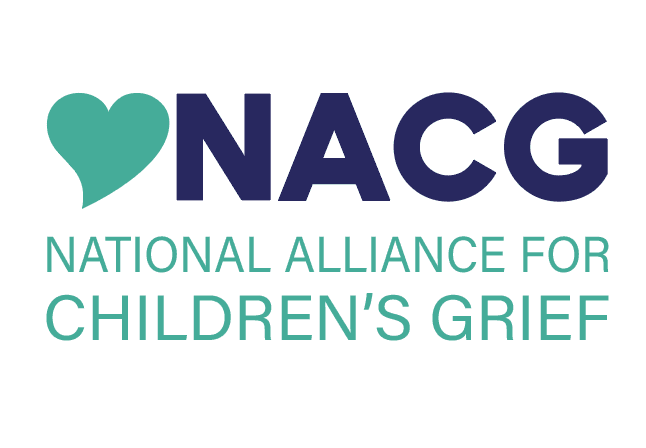When someone you care about is grieving, it can be hard to know how to help. Many people worry about saying the wrong thing, making their pain worse, or intruding. There are no perfect words to take away grief. Support is not about having the right words, giving advice, or trying to explain the loss. It is about creating a safe and caring space where grief can be felt without judgment or pressure and the griever can feel supported by those around them. Continue reading for tips about how to best support someone grieving.
The Holiday Season is sometimes difficult and often filled with emotional stressors, even during the best of times. For those of us who have suffered the death of a loved one, the holidays may seem especially complicated and can be filled with ambivalence and mixed emotions. Anticipation of a new experience, like the first holiday after a death, or familiar rituals that remind us of our loved ones, can be overwhelming.
Many bereaved families have found unique, and meaningful, ways of remembering their loved one during the holiday season. Here are some ideas which have helped others and may provide additional support.
The holiday season is a special time for families and communities; however, it can be challenging for those who experienced the loss of their loved ones. Grief is constantly evolving and, at times, can be an unpredictable process and fortunately there are activities a person can do to help themselves or others get through this potentially painful period of time.
When tragedy strikes, the grief is felt not only by individuals but by everyone connected to that community. Whether you are mourning someone close to you or sharing in the collective grief of your community, it is important to remember that your responses are valid and that support is available.
We cherish pets as members of our families and dealing with their loss can be a painful experience, often leaving a void in our lives. The grief you experience after losing a pet is real and valid and though it may not be the same type of loss as others, it is still a loss to acknowledge and grieve. This article offers tips for coping with pet loss and insight into disenfranchised grief and how it may impact the grieving process of losing a pet.
Grief has the power to disrupt our beliefs and may lead us to question a great deal in life. For many, spirituality offers an anchor amid loss, providing hope, comfort, and meaning. And what happens when in the depths of sorrow that spirituality becomes shaken? When prayers and meditative reflections feel unfulfilled, and we experience a sense of distance from faith in our lives, how do we handle deep spiritual pain? This feeling may be one of the most painful aspects of grieving.
Parents and caregivers often need support themselves when caring for children after a loss. In responding to a loss or crisis, whether it’s a death, natural disaster, violence, or trauma children and their families can benefit from the following information as a guide for conversation, and support, during times of need.
Navigating the aftermath of a sudden, traumatic loss can feel overwhelming, both for the grieving individual and those offering support. The impact of this type of loss can be challenging and leave grieving individuals with the need for specialized grief support. This article provides insights into understanding and responding to a devastating loss that occurs unexpectedly.
We often think that grief is something we deal with after someone we love passes away. For many, however, feelings of grief and loss occur before the death of a loved one. This is what we call anticipatory grief. To help the healing process begin even before a loved one’s death, we have provided some tips and coping strategies in this article.
Certain times of the year can be particularly difficult for those who have lost parental figures in their lives or who themselves have lost a child. It can feel overwhelming to be met with social media posts of celebrations, parental acknowledgements, and children’s milestones while confronting a loss of your own.
The grieving process can leave us with many complex emotions, especially during times when difficult memories arise. Coping with memories and milestones can feel overwhelming, especially when you are navigating all of the changes that come with loss. Here are some ideas to help cope with memories and milestones associated with grief.
Navigating the complexities of grieving the loss of a loved one involves acknowledging that difficult emotions are a natural part of the process. Releasing such emotions requires one to willingly let go of attachments to the past or expectations for the future and embracing the present moment. Here are some tips to help you navigate the path toward healing...
When we think of self-care in grief, it may not initially make sense. We might ask ourselves, how can we take care of ourselves when grief is so overpowering? How can we focus on ourselves when our focus should be on the loss experienced? How can we take care of ourselves when there are a million other things to do? Just as we are reminded on every airplane flight, you have to put your mask on first before helping someone else. In this article, we will explore different strategies that can be used to reduce stress, anxiety, and help ground ourselves when feeling overwhelmed by complicated emotions.
It is estimated that over 600,000 children missed one or more days of school due to fear of bullying or intimidation by other students (CDC, 2015). When a child is grieving, they are more vulnerable to bullying as they may display emotional and behavioral changes at school when processing their losses. Here are some tips for parents and adults to provide practical and emotional support to a grieving child by recognizing signs of bullying.
Perinatal loss is a unique type of loss involving a baby’s death during pregnancy, labor, or shortly after birth. It has become a significant global health issue. According to the United Nations Inter-Agency Group for Child Mortality Estimation (UN IGME), the global neonatal mortality rate in 2020 was 17.4 deaths per 1,000 live births, and the World Health Organization reported 1 in 4 women will experience pregnancy loss and 2.6 million stillbirths each year.










